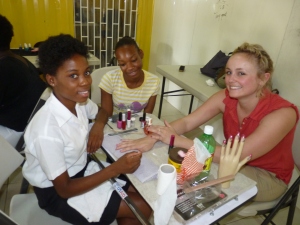“We call it a different name, we call it survival.”
In one simple sentence our partner in Montego Bay, Jamaica defined the challenge to combatting sex trafficking in the country. With the widespread prevalence of poverty and sexual abuse, buyers and traffickers are eager to exploit Jamaican youth with offers of provision and protection.
Today, we had the opportunity to meet with our partners in Montego Bay, tour their new home, meet a shy but sweet young boy who is currently seeking adoptive parents, talk about the issue of sex trafficking to teenagers attending a life skills class, and meet with board members and leadership to discuss challenges and explore solutions to effectively respond to sex trafficking in Jamaica.
During our discussion with students we asked if they ever knew anyone who traded sex for a place to live or were forced by a violent boyfriend to have sex in exchange for goods or money. The answer was an overwhelming, YES! They explained that despite its prevalence, sex trafficking was hardly ever discussed by media or the community. We are working with our local partner to develop awareness and education strategies to inspire prevention and increased care for at-risk or victimized youth.
Tomorrow, we have the opportunity to educate students and staff members at a local community center on the issue of sex trafficking. We will explain indicators of trafficking and offer response solutions to mobilize a community of new activists.
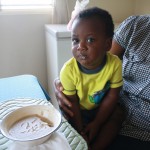
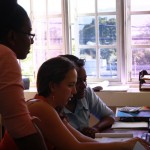

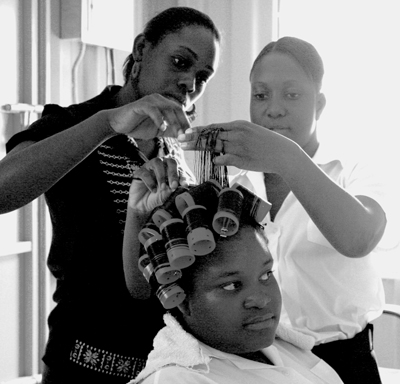 Our partners in Jamaica work hard to provide youth in Negril with vocational skills so they are employable, and less vulnerable to the demand for commercial sex in this beautiful city. Our partners built a relationship with local law enforcement and educate officials on sex trafficking and the resources available to trafficked youth. Whether a child is a resident at the safe house or a student in the vocational program, vulnerable young men and women have access to a staff counselor who is equipped to address the challenges the youth are facing and educate them about the dangers of sex trafficking.
Our partners in Jamaica work hard to provide youth in Negril with vocational skills so they are employable, and less vulnerable to the demand for commercial sex in this beautiful city. Our partners built a relationship with local law enforcement and educate officials on sex trafficking and the resources available to trafficked youth. Whether a child is a resident at the safe house or a student in the vocational program, vulnerable young men and women have access to a staff counselor who is equipped to address the challenges the youth are facing and educate them about the dangers of sex trafficking.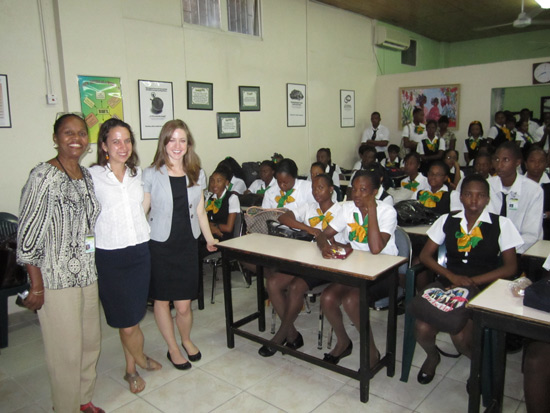
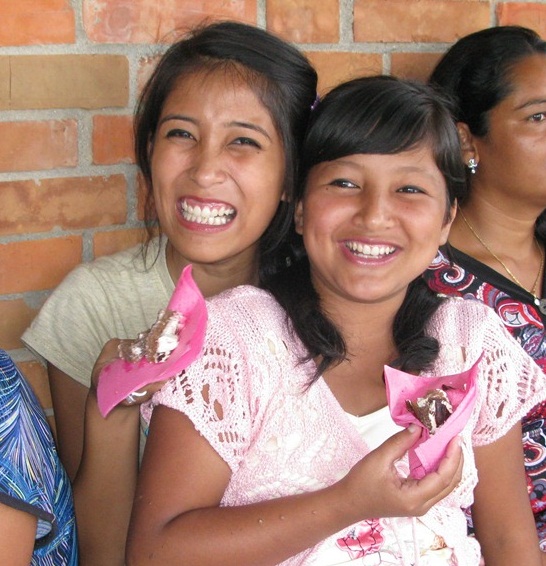 Hanna never knew her birth date, so when her loving new family realized it had been a year since she was set free, they blessed her by celebrating the one year anniversary of her rebirth into freedom, complete with a surprise party.
Hanna never knew her birth date, so when her loving new family realized it had been a year since she was set free, they blessed her by celebrating the one year anniversary of her rebirth into freedom, complete with a surprise party.